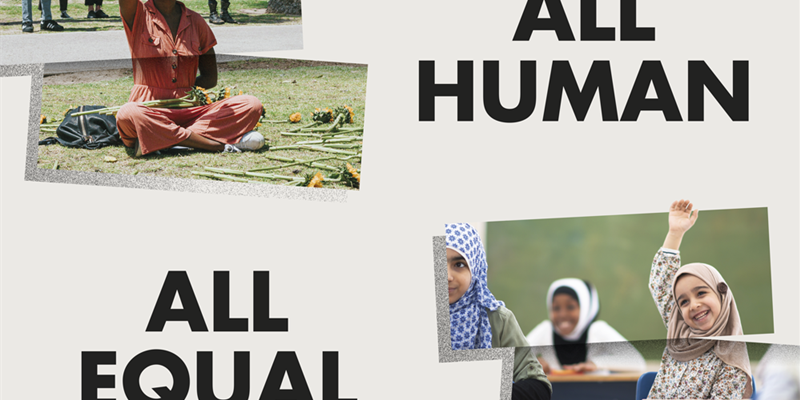
In this blog, our Editor Helen, talks about your rights to health care and making important decisions about your treatment.
Human Rights Day (10 December) celebrates the signing of the Universal Declaration of Human Rights. Since its creation in 1948, it has become the most translated document in the world, existing in over 500 languages.
The Declaration sets out 30 rights that every human has no matter their gender, race, political views or nationality. These include being paid fairly for your work, being able to access education and being presumed innocent until proven guilty.
An adequate standard of living
Article 25 states: “Everyone has the right to a standard of living adequate for the health and well-being of himself and of his family, including food, clothing, housing and medical care and necessary social services, and the right to security in the event of unemployment, sickness, disability, widowhood, old age or other lack of livelihood in circumstances beyond his control.”
The parts in bold are important here – everyone has a right to medical care, and to be looked after if they are unable to work. But there are many reasons that it can be easier said than done to get the help you are entitled to.
You might not know that the support even exists. You might not have the energy to investigate the help that’s on offer, especially on top of dealing with cancer and its treatment. Perhaps you were brought up to be self-reliant and not ask for help.
Understanding your rights
Macmillan has collected a few tools to help you find your way around the system and understand your rights:
Standing up for your rights
Although everyone has an equal right to health care, we know that in reality, access is far from equal. Some people don’t get the treatment they should – whether that’s because their experience isn’t well understood by healthcare professionals, or they’ve been discouraged from speaking up when things go wrong.
To try and change this, Macmillan worked with Well Versed Ink to create a toolkit called Raising your voice. It includes:
We also have advice for other people who may find it harder to get the care they need, including young carers, trans and non-binary people and the wider LGBTQ+ community.
Making the right decision
You have the right to make decisions about your care. But to do that, you need to understand your options. To help people feel more in control of health and treatment, our cancer information comes in lots of different formats, including:
If you can’t find what you need, let the Cancer Information Team know by emailing cancerinformatinteam@macmillan.org.uk and we’ll do our best to help.
Whatever cancer throws your way, we’re right there with you.
We’re here to provide physical, financial and emotional support.
© Macmillan Cancer Support 2026 © Macmillan Cancer Support, registered charity in England and Wales (261017), Scotland (SC039907) and the Isle of Man (604). Also operating in Northern Ireland. A company limited by guarantee, registered in England and Wales company number 2400969. Isle of Man company number 4694F. Registered office: 3rd Floor, Bronze Building, The Forge, 105 Sumner Street, London, SE1 9HZ. VAT no: 668265007